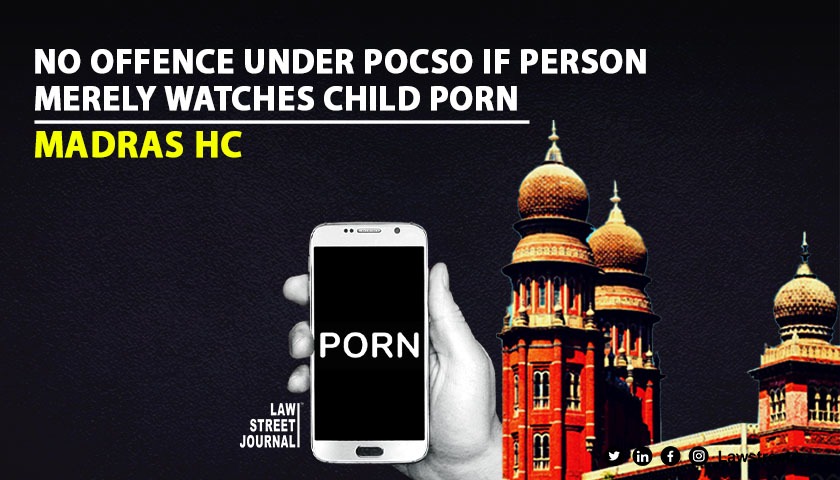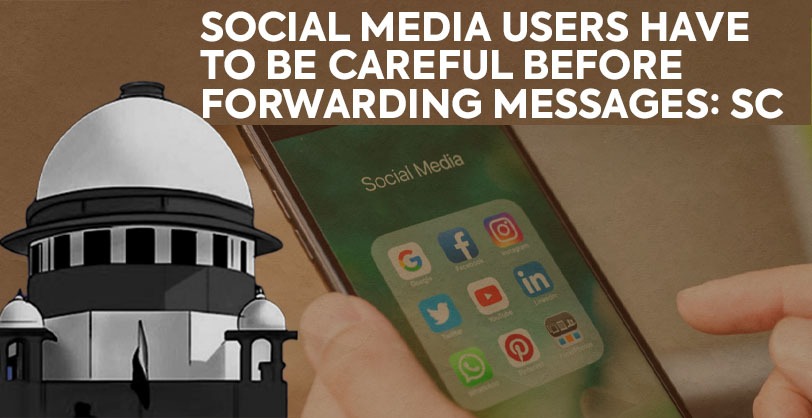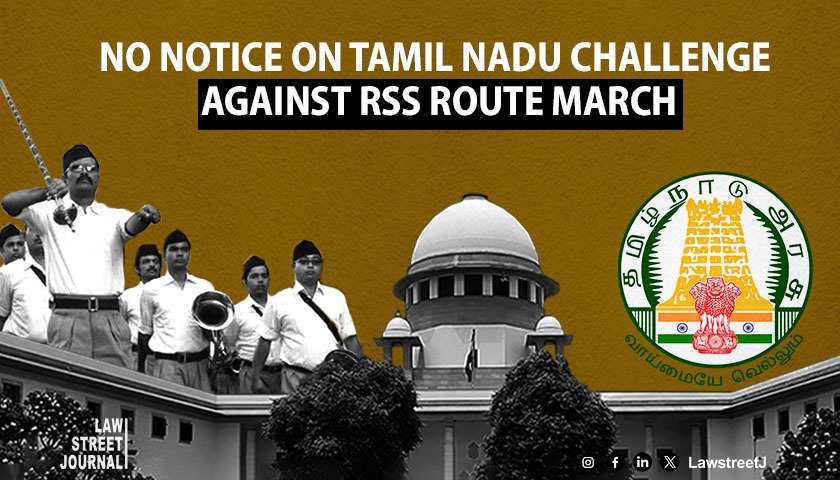Madras: Merely downloading or watching child pornography on ones personal electronic device is not an offence under the Protection of Child from Sexual Offences (POCSO) Act and the Information Technology (IT) Act, the Madras High Court recently ruled.
For an offence under Section 14(1) of Protection of Child from Sexual Offences Act, 2012, a child or children must have been used for pornography purposes. This would mean that the accused person should have used the child for pornographic purposes, Justice N Anand Venkatesh clarified. Even assuming that the accused person had watched child pornography video, that too, is beyond the scope of Section 14(1) of Protection of Child from Sexual Offences Act, 2012.
Therefore, watching pornography, at the best, can only be construed as a moral decay of the accused person, the high court said.
Further, the court stated that watching child pornography, per se, is not an offence under Section 67-B of Information Technology Act, 2000. Even though Section 67-B of Information Technology Act, 2000, has been widely worded, it does not cover a case where a person has merely downloaded in his electronic gadget, a child pornography and he has watched the same without doing anything more
The Court was hearing a plea by a 28-year-old man who had been booked under the POCSO Act and the IT Act for having downloaded and viewed two child pornographic videos on his mobile phone.
Porn addiction becoming a growing concern: HC
In today's world, teenagers are facing a new challenge from the gadgets, which bombards them with all kinds of information without any censor, at the touch of a button adult material, the court apprised. The addiction earlier was smoking and drinking, whereas now it is porn. And so, the alarming viewers of porn photos/videos. This, is in view of the fact that it is easily available in the electronic gadgets and by repeatedly watching the same, it becomes a habit and ultimately, the person gets addicted.
Porn addiction, like other substances can be understood through principles of "operant conditioning", the court explained. This is where a certain behavior, watching porn in this case, is "reinforced", or rewarded, which in turn makes you want to do it again (and again).
Lots of different things can be reinforcing, and thus influence our behavior, but porn can be especially reinforcing because the reward taps into a very basic instinctual drive - sex. Therefore, it is very easy to become addicted to porn - it is accessing a fundamental (and very enjoyable) natural drive. It is also much easier to obtain than going out and finding a "mate" to fulfill this drive.
9 out of 10 boys exposed to pornography before 18 years: HC
Due to accessibility of sexually explicit material on the internet, porn addiction is becoming a problem among teenagers, the Court added with concern.
Referring to a recent study which brought the following statistics, the below was revealed:
9 out of 10 boys are exposed to some form of pornography before the age of 18.
6 out of 10 girls are exposed to pornography before 18 years old.
On average, a male's first exposure to pornography is at 12 years old.
71% of teens have done something to hide what they do online from their parents.
Teenage boys, 12-17 years old, have the highest risk of developing a porn addiction.
Further, the Court said that the Gen-Z was facing this problem the most. Rather than punishing them, proper education and advise is what is required to help children get over the porn addiction, the Court said.
The Generation Z Children are grappling with this serious problem and instead of damning and punishing them, the society must be mature enough to properly advice and educate them and try to counsel them to get rid of that addiction, the Court said while adding that the education must start from the school level since exposure to adult material starts at that stage itself.
With regard to the petitioner, the court had advised him to attend counselling, if he is still afflicted with this addiction. With this, the Court wished him a happy and healthy future, while quashing the case against him.








![Madras High Court Directs Tamil Nadu Government to Ensure Quota for Transgenders in Local Body Elections [Read Order]](/secure/uploads/2023/08/lj_2507_7a03d113-08b1-4670-b6fb-9058aee481d0.jpg)








